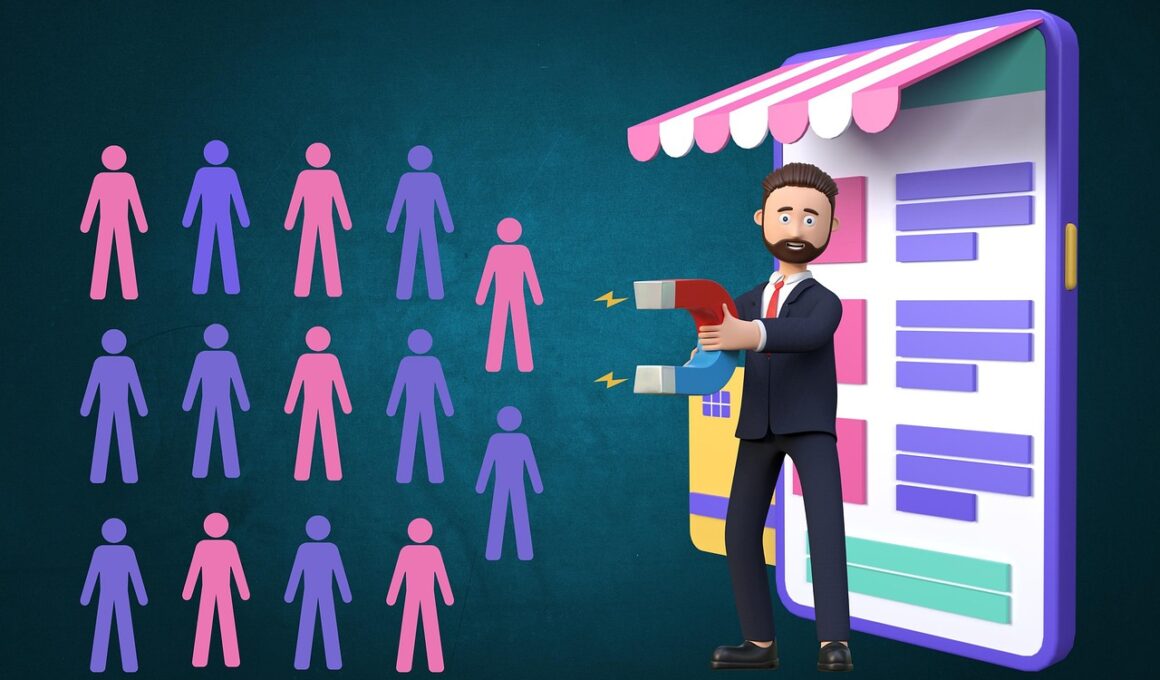Common Mistakes to Avoid in Lead Generation at Events
Effective lead generation at events is crucial for any marketing strategy. However, many organizations fall into common pitfalls while trying to attract potential customers. One significant mistake is failing to define clear objectives for the event. Without a well-established goal, the team may struggle to identify the right type of attendees to target. This misalignment leads to wasted resources and missed opportunities for engagement. Additionally, relying solely on passive marketing tactics, such as displaying signage, often underwhelms event attendees. Active engagement strategies, such as personalized interactions, enhance lead acquisition and create memorable experiences. Furthermore, neglecting pre-event marketing is detrimental. Building anticipation before the event can greatly increase attendance and generate interest. Use social media and email campaigns to inform your target audience about the event details. Many also overlook the importance of lead follow-up post-event. A timely and personalized follow-up can significantly influence a lead’s decision-making process; hence, nurturing connections promptly is essential for success. Lastly, ensure your team is properly trained in engaging with attendees and articulating your brand’s value proposition to foster strong relationships.
A vital aspect often missed during lead generation is the collection of accurate lead information. Skimping on this process can result in gathered data that is incomplete or inaccurate. Having a dedicated system for capturing and organizing lead data during the event is essential for future interactions. Ensure that you utilize digital solutions, such as QR codes or dedicated apps, to streamline this process. Another mistake is failing to create engaging content that resonates with your audience. Utilizing eye-catching graphics, informative brochures, or even engaging multimedia presentations can spark interest. The overall atmosphere of your booth or event space plays a vital role as well; it should be visually appealing and inviting to draw in attendees. In addition, neglecting to segment the leads after gathering data can hinder your marketing efforts. Having segmentation allows for tailored follow-ups based on interests and needs, thus improving the chances of conversion. Representation of your team is also key; people are more likely to engage when they see familiar and approachable staff members. Therefore, the right mix of personalities can facilitate better conversations and relationships, significantly enhancing your lead generation efforts at events.
Engagement Strategies for Success
To maximize engagement during events, it’s important to implement interactive strategies. Utilizing gamification techniques can significantly increase interest and attendee participation. Activities such as quizzes, contests, or raffles not only entertain but also motivate leads to provide their contact information. This playful approach effectively engages visitors and helps embed your brand in their memory. Additionally, consider hosting informative sessions or workshops as part of your event. These sessions can position your brand as a thought leader in your industry, showcasing your expertise and building credibility with attendees. Collaborating with industry influencers or speakers can also enhance the event’s appeal, drawing more attendees and boosting your visibility. Another key factor is the ability to adapt and respond in real-time during the event. Monitor attendees’ reactions and pivot your strategies to focus on what resonates most with them. This responsiveness fosters a more personal experience and increases the likelihood of generating quality leads. Remember, that the authenticity of your brand should shine through in all engagements; showing genuine care for attendees’ needs will enhance trust and offer significant returns, leaving a lasting impression.
The post-event phase is equally vital in the lead generation process. This period should focus on nurturing relationships formed during the event. Sending personalized thank-you emails or follow-ups can reaffirm attendees’ interest and encourage further discussion. A well-crafted follow-up strategy kept on track will significantly improve lead conversion rates. Include clear calls-to-action in your communications, directing leads to specific resources or upcoming actions that can guide them along their customer journey. Additionally, you might consider creating a post-event recap that highlights success stories, key takeaways, and valuable content. Sharing this on social media and with your email list helps keep momentum and demonstrates your event’s value. Moreover, utilizing feedback forms or surveys can provide insights into attendee experiences and your event’s effectiveness. Asking for their opinions shows that you value their input while also giving you data to improve future events. Furthermore, it’s crucial to analyze the collected leads in detail, distinguishing which methods and outreaches yielded the best results for continuous improvement. Ultimately, a strong follow-up combined with effective analysis will drive future success in your lead generation efforts.
Tech Tools and Resources
In today’s tech-driven world, leveraging appropriate tools can streamline your lead generation at events. Various software solutions can help manage registrations, track attendee data, and engage with potential leads effectively. Event management platforms such as Eventbrite or Cvent are fantastic options for organizing your events and collecting RSVPs. Consider employing customer relationship management (CRM) systems that can track leads and automate follow-up emails based on attendee interactions. Furthermore, integrating chatbots into your event can assist in real-time answers to attendee queries, enhancing the overall experience. Social media management tools that allow pre-event promotion can also be helpful; platforms like Hootsuite enable you to schedule posts and track engagement metrics efficiently. Another powerful asset is analytics tools that can help you assess the event’s performance, giving you insights into participant demographics and behavioral trends. Additionally, preparing digital content beforehand, such as promotional videos and engaging blog articles, can diversify your outreach efforts and draw interest before the event. Ultimately, taking advantage of technology can improve operational efficiency while ensuring that your lead generation strategies are effective and far-reaching.
Networking is a crucial component of lead generation at events; thus, actively seeking connections is essential for success. Create strategies that encourage networking opportunities among attendees. Providing comfortable spaces for informal discussions can lead to fruitful discussions and potential partnerships. Consider hosting smaller breakout sessions where attendees can interact more deeply and foster connections. Moreover, be sure to equip your team with networking skills and strategies; they should be prepared to engage proactively with attendees, building rapport and establishing trust. Additionally, ensuring that your team members have business cards or digital ways to share contact information will facilitate future communication. In light of this, outreach shouldn’t only focus on potential clients but also on cultivating relationships with other industry professionals. Establishing a robust network will not only offer future collaboration ideas but also create opportunities for referrals. Encouraging your team to follow-up and connect with people encountered at the event further boosts lead generation. Remember, relationship building is a long-term process; nurturing these connections is just as vital as initial engagement to maximize lead generation outcomes from events.
Conclusion: Best Practices
Finally, to avoid common mistakes in lead generation at events, be sure to conduct regular assessments of your strategies. Evaluating your performance saves time and resources for future events, allowing you to refine your approach continually. Focus on what resonated well with attendees and adjust methods accordingly based on feedback. Keeping an adaptable mind and a willingness to innovate can vastly improve the outcomes of your lead generation initiatives. A cohesive team that understands their roles, aligned with a common purpose, is essential throughout event planning and execution. Finally, prioritize the management of technical aspects; seamless registration processes and functioning equipment are critical in creating an effortless experience for attendees. Remember that effective lead generation at events is a combination of planning, execution, and follow-up efforts. By steering clear of these prevalent pitfalls and implementing effective strategies, organizations can enhance their lead generation results, improve customer relationships, and ultimately achieve their business goals more successfully. Incorporating these best practices will lead to successful events and a significant boost in lead generation efforts for your organization.
In conclusion, understanding the common mistakes in the lead generation process at events is essential for marketers. By identifying these pitfalls and focusing on proactive strategies, organizations can significantly enhance their effectiveness in attracting potential customers. Therefore, ensuring clear goals, engaging environments, personalized follow-ups, and using technology can make a considerable difference. Implement a combination of active engagement techniques, effective content delivery, and a well-planned networking approach to foster those critical connections necessary for success. Regularly assessing performance and adjusting strategies based on feedback will allow for continuous improvement in future initiatives. Maintaining relationships post-event can also prove essential and should not be underestimated. Remember, the aim is not just gathering leads but nurturing relationships that convert leads into loyal customers over time. By implementing these principles into your planning processes, you will not only avoid common mistakes but also create memorable experiences for attendees that resonate long after your event has concluded. In the competitive landscape of event marketing, distinguishing yourself through effective lead generation becomes a competitive advantage for your organization.





